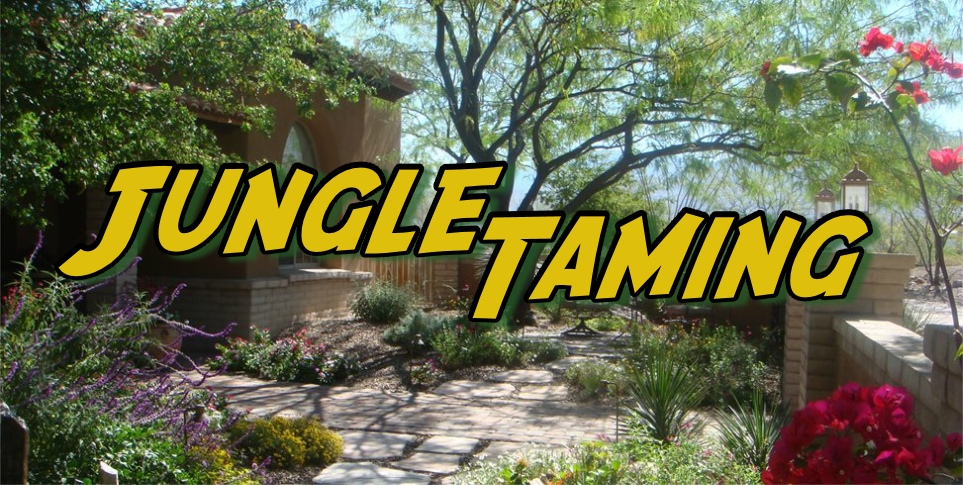INTRODUCTION TO HARDSCAPE CONSTRUCTION
I have been teaching Landscape Construction at Midlands Technical College for almost 10 years. I feel that “landscape” and “landscaping” are words that are over used. Today, I am going to refer to landscape construction as hardscape construction. Hardscapes are non-plant parts in the landscape.
Hardscape features are (1) walkways, (2) driveways, (3) patios, (4) decks, (5) retaining walls, (6) ponds, (7) fences, (8) pergolas, (9) arbors (10) gazeboes and outdoor kitchens and (11) campgrounds. Closely related topics under hardscape construction are: water control; (1) irrigation and (2) drainage.
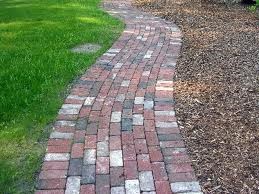 Walkways guide us from one landscape feature to another feature. They should be 4.5 ft. wide. They are constructed with brick pavers, concrete pavers, flagstone and poured concrete.
Walkways guide us from one landscape feature to another feature. They should be 4.5 ft. wide. They are constructed with brick pavers, concrete pavers, flagstone and poured concrete.
Driveways lead from the street to the garage. They should be wide enough (14 ft.) for the vehicle and pedestrian traffic. Some of the driveway materials are stamped and colored concrete, clay 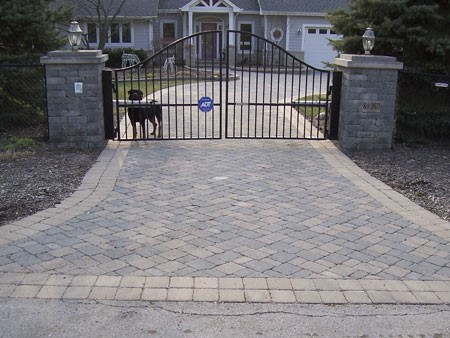 brick and concrete pavers.
brick and concrete pavers.
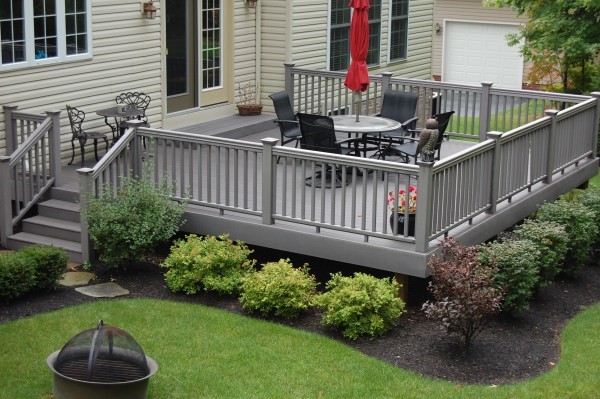 Create an outdoor living area with a deck. A deck is a transition element between the home and the lawn area.
Create an outdoor living area with a deck. A deck is a transition element between the home and the lawn area.
Segmented retaining walls retain soil and produce various levels of the ground plane.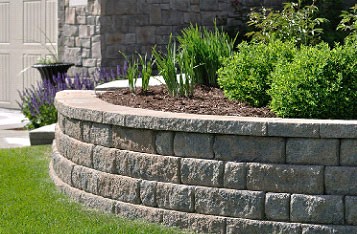
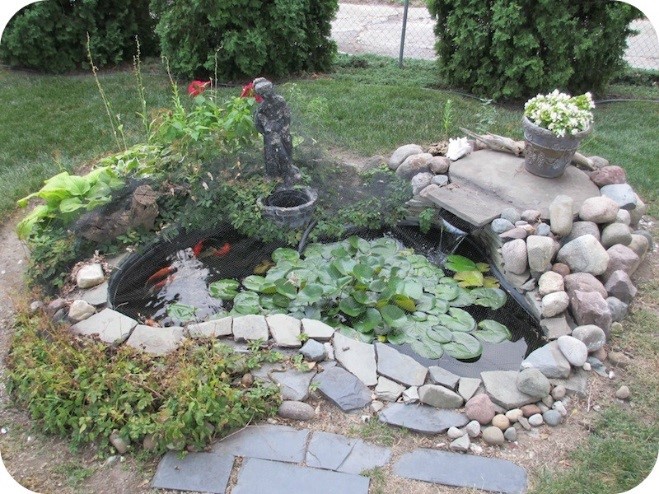 A pond with a water fall is enjoyed as a focal point and the sound of splashing running water has a calming effect.
A pond with a water fall is enjoyed as a focal point and the sound of splashing running water has a calming effect.
Fences are used to create privacy, a feeling of security and a screen from undesirable views. 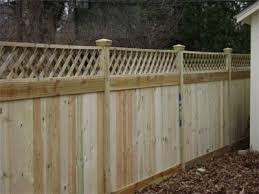
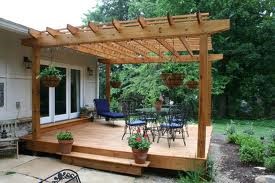 Pergolas are open and airy structures, extending the living space to the outdoors. When attached to the home, the crossbeams can decrease the afternoon sunlight and glare. They are used to cover patios and decks.
Pergolas are open and airy structures, extending the living space to the outdoors. When attached to the home, the crossbeams can decrease the afternoon sunlight and glare. They are used to cover patios and decks.
Arbors are smaller than pergolas. They are used to define a landscape entrance.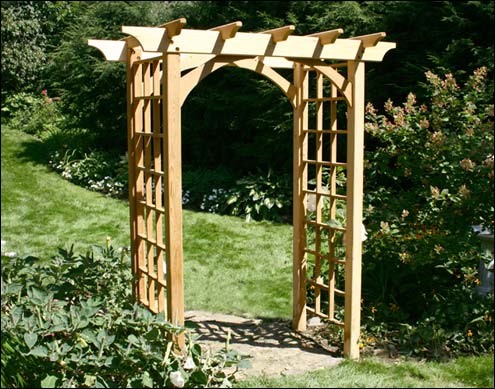
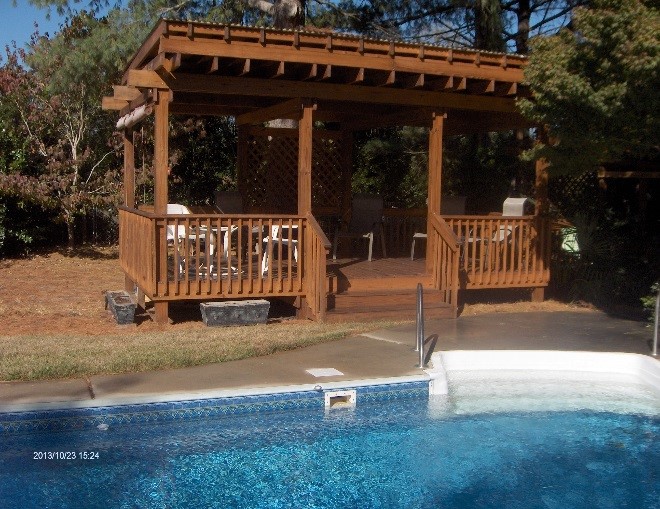 Gazebos are different from pergolas in that they have a roof and partial walls. They are used to survey (gaze) the landscape from a vantage point.
Gazebos are different from pergolas in that they have a roof and partial walls. They are used to survey (gaze) the landscape from a vantage point.
The Outdoor kitchen extends cooking to the outdoors. This kitchen is equipped with a gas stove, charcoal grill, hot and cold running water and has a refrigerator under the roof. 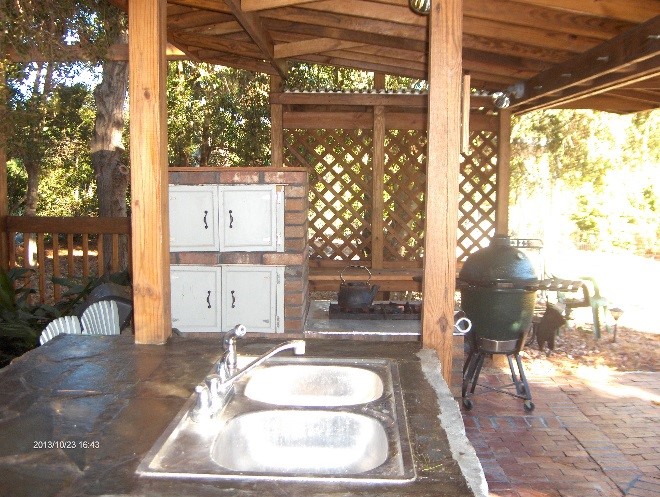
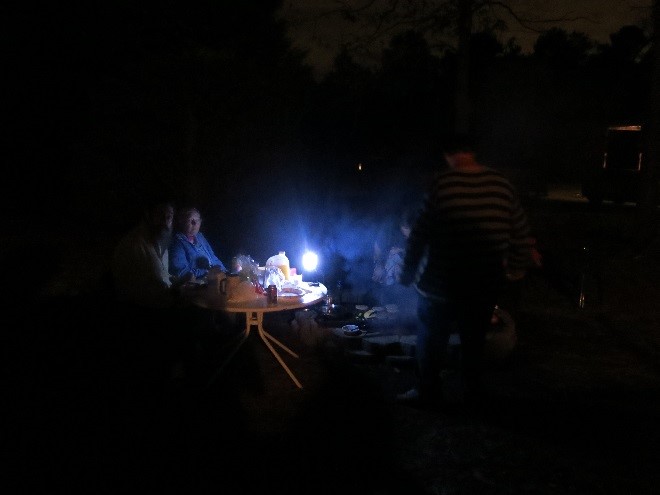 Campgrounds provide an escape into the natural environment. Modern campground sites are composed of water and electric hook-ups, lighting and cooking stations.
Campgrounds provide an escape into the natural environment. Modern campground sites are composed of water and electric hook-ups, lighting and cooking stations.

